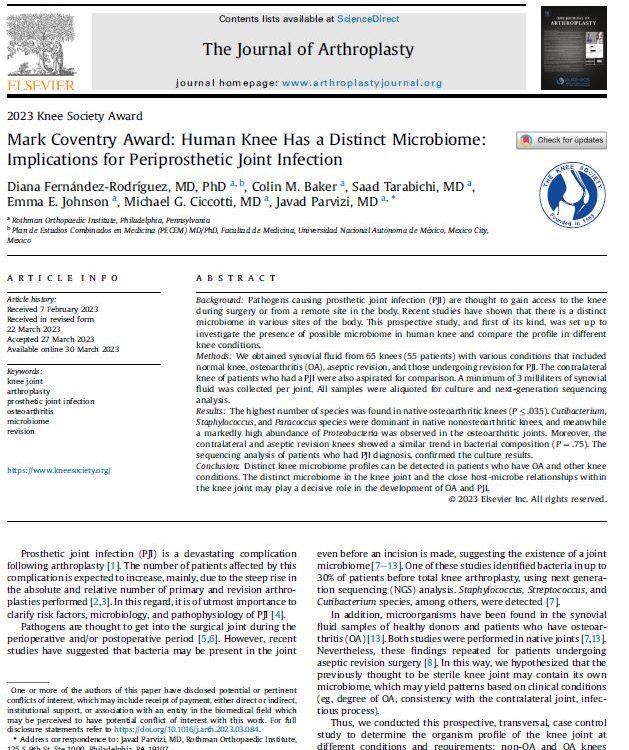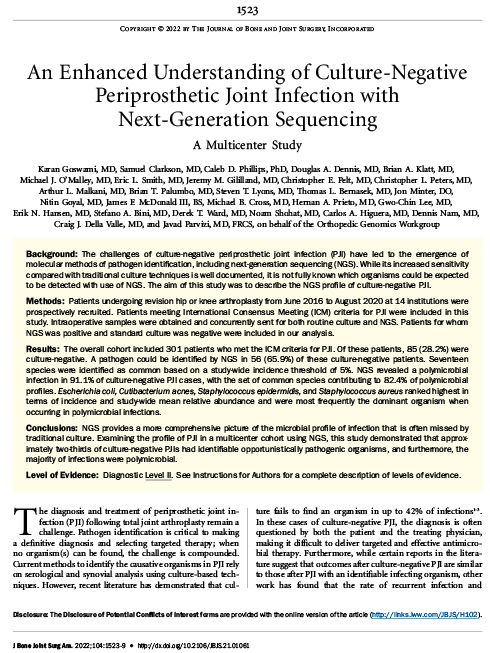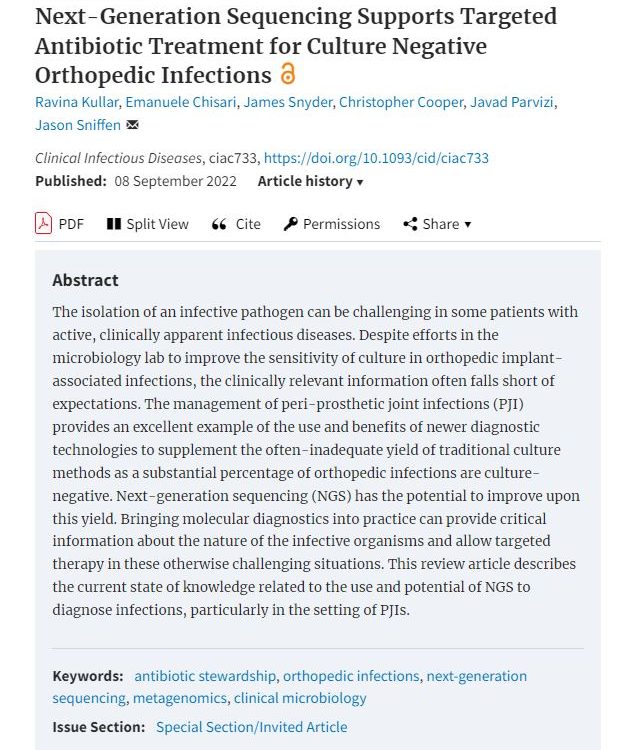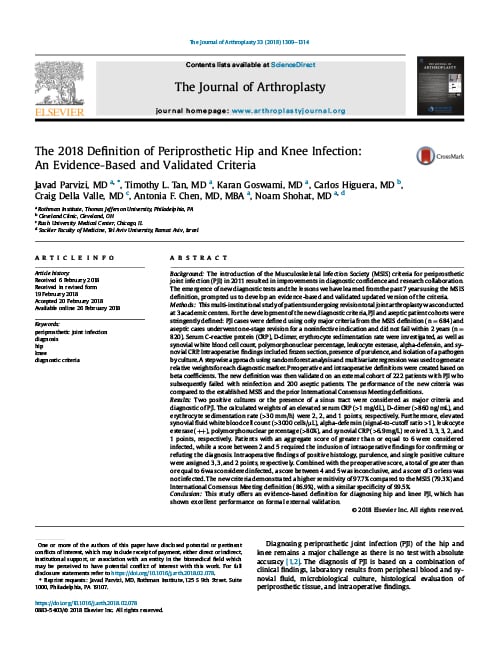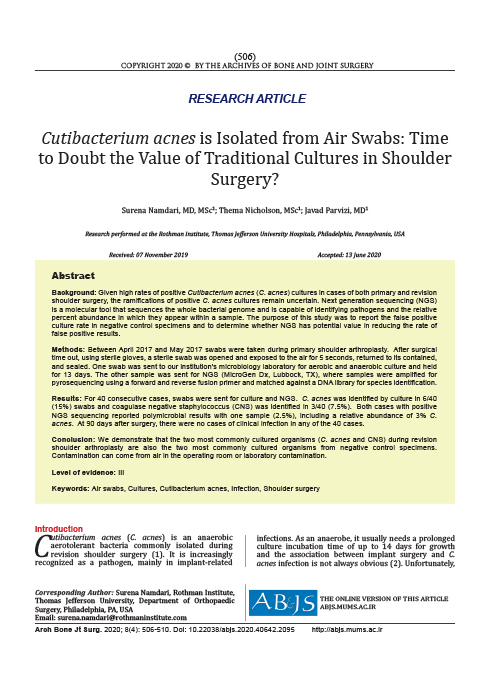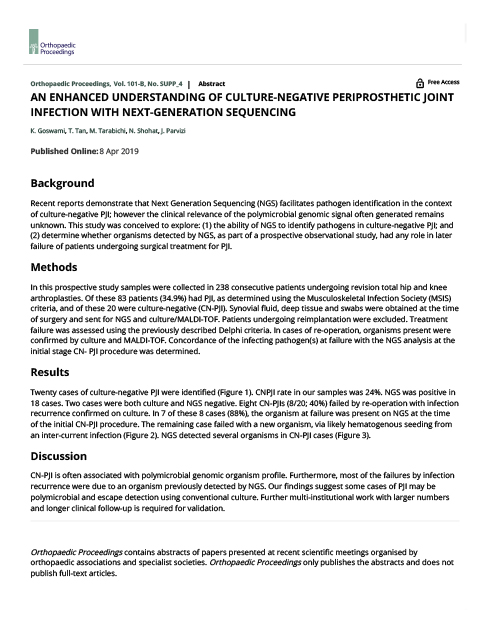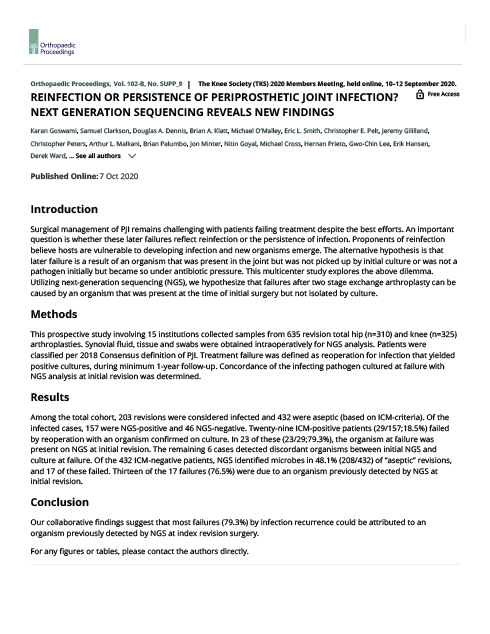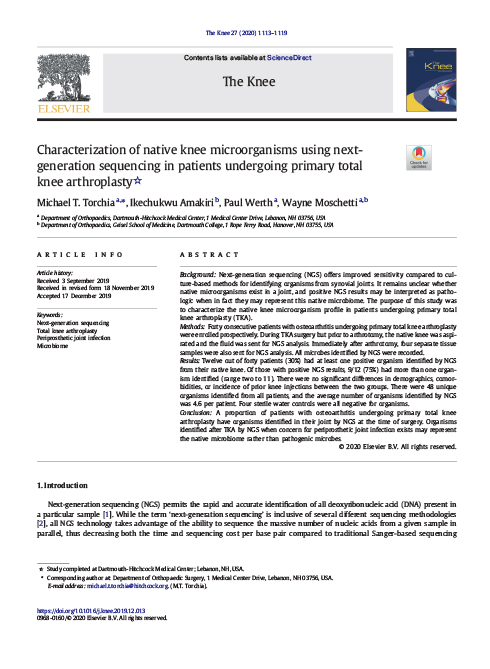- The Journal of Arthroplasty 38 (2023) S2-S6 Study: This prospective study aimed to investigate the presence of a possible microbiome in the human knee and compare the microbial profiles in different knee conditions. Synovial fluid samples were collected from 65 knees with various conditions, including normal knees, osteoarthritis, aseptic revision, and prosthetic joint infection (PJI). The results revealed that there is a distinct knee microbiome, with different microbial compositions observed in different knee conditions. These findings suggest that the knee microbiome may have an impact on the development of osteoarthritis and PJI. Read Study…
- THE JOURNAL OF BONE AND JOINT SURGERY, INCORPORATED 2022 Sep 7;104(17):1523-1529 Study: NGS provides a more comprehensive picture of the microbial profile of infection that is often missed by traditional culture. Examining the profile of PJI in a multicenter cohort using NGS, this study demonstrated that approximately two-thirds of culture-negative PJIs had identifiable opportunistically pathogenic organisms, and furthermore, the majority of infections were polymicrobial. Read Study…
- Infectious Disease Society of America 08 September 2022 Article: Bringing molecular diagnostics into practice can provide critical information about the nature of the infective organisms and allow targeted therapy in these otherwise challenging situations. This review article describes the current state of knowledge related to the use and potential of NGS to diagnose infections, particularly in the setting of PJIs. Read Study…
- The Journal of arthroplasty Research Article: This multi-institutional study of patients undergoing revision total joint arthroplasty was conducted at 3 academic centers. For the development of the new diagnostic criteria, PJI and aseptic patient cohorts were stringently defined: PJI cases were defined using only major criteria from the MSIS definition (n = 684) and aseptic cases underwent one-stage revision for a noninfective indication and did not fail within 2 years (n = 820). Read Article…
- Archives of Bone and Joint Surgery Research Article: Given high rates of positive Cutibacterium acnes (C. acnes) cultures in cases of both primary and revision shoulder surgery, the ramifications of positive C. acnes cultures remain uncertain. Next generation sequencing (NGS) is a molecular tool that sequences the whole bacterial genome and is capable of identifying pathogens and the relative percent abundance in which they appear within a sample. Read Article…
- Orthopaedic Proceedings Research Article: In this prospective study samples were collected in 238 consecutive patients undergoing revision total hip and knee arthroplasties. Of these 83 patients (34.9%) had PJI, as determined using the Musculoskeletal Infection Society (MSIS) criteria, and of these 20 were culture-negative (CN-PJI). Synovial fluid, deep tissue and swabs were obtained at the time of surgery and sent for NGS and culture/MALDI-TOF. Read Article…
- Orthopaedic Proceedings Research Article: Surgical management of PJI remains challenging with patients failing treatment despite the best efforts. An important question is whether these later failures reflect reinfection or the persistence of infection. Proponents of reinfection believe hosts are vulnerable to developing infection and new organisms emerge. Read Article…
- Science Direct Research Article: A proportion of patients with osteoarthritis undergoing primary total knee arthroplasty have organisms identified in their joint by NGS at the time of surgery. Organisms identified after TKA by NGS when concern for periprosthetic joint infection exists may represent the native microbiome rather than pathogenic microbes. Read Article…
Due to severe weather and FedEx Delays, there may be sample processing delays at our lab.
